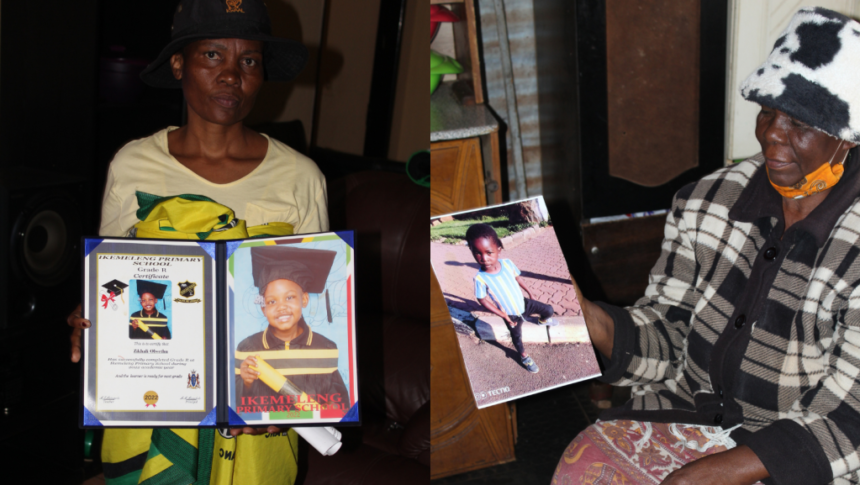The tragic incident that unfolded in the Soweto neighbourhood of Naledi has left a community in mourning and seeking answers. The deaths of young children, allegedly due to food poisoning, have shaken the residents to their core.
Dipuo Zikhali, a grandmother who gave her granddaughter money to buy snacks, never could have imagined the horror that would follow. After consuming the treats, the children complained of stomach pain and discomfort. Olwethu, Leon, Neo, and Katlego were all affected, with Olwethu experiencing the most severe symptoms.
As the children’s conditions worsened, frantic attempts were made to save them. Olwethu was rushed to the hospital where she was placed in the intensive care unit. Sadly, Neo and Leon did not survive, leaving their families devastated and searching for answers.
The cause of the children’s illnesses and deaths remains a mystery. Speculations of plant poison and rat poison were mentioned, but concrete answers have not been provided. The families have been left in limbo, waiting for post-mortem results that have yet to be released.
In a heartbreaking turn of events, six more children in Naledi lost their lives a year later due to suspected food poisoning. This time, a toxic agricultural pesticide called Terbufos was identified as the culprit. The Department of Health swiftly investigated the matter, but families like Dipuo and Mathotho are still left in the dark.
The spate of food-related illnesses and deaths in South Africa is a cause for concern. From Johannesburg to Mpumalanga, children have been hospitalized after consuming snacks bought from vendors. The alarming number of cases has raised questions about food safety and the regulation of food vendors.
The families affected by these tragedies are seeking closure and justice. They deserve to know the official cause of death of their loved ones and to see measures put in place to prevent similar incidents from occurring in the future. As the community mourns the loss of innocent lives, the need for accountability and transparency in food safety practices becomes more urgent than ever. Spaza shops and street vendors have come under scrutiny for their role in selling snacks that have led to cases of suspected food poisoning among school children in South Africa. The Department of Basic Education has raised concerns about the incidents of food poisoning that have been reported this year, all of which have been linked to snacks purchased from vendors and spaza shops near schools.
In a statement released by the education department, spokesperson Elijah Mhlanga emphasized the need for schools to maintain a database of people selling food and drinks in close proximity to school premises. While schools may not have direct control over street vendors, it is important for the school community to monitor and keep track of these vendors to ensure the safety of the students.
The Department of Basic Education has urged anyone who suspects food poisoning to report it to the South African Consumer Goods and Services Ombudsman at 0800 029 999. This initiative aims to address the issue of food safety and hold vendors and spaza shops accountable for selling contaminated snacks.
It is crucial for parents, teachers, and school authorities to be vigilant and proactive in monitoring the food that children consume, especially snacks bought from outside sources. By working together and raising awareness about the risks associated with unregulated food vendors, steps can be taken to prevent future cases of food poisoning among school children.
Overall, the incidents of food poisoning linked to snacks bought from spaza shops highlight the need for stricter regulations and oversight in the food industry. The health and well-being of children should always be a top priority, and efforts must be made to ensure that the food they consume is safe and free from harmful contaminants.






